Roland Yeomans's Blog, page 14
March 23, 2024
O.K. ??

On March 23, 1839, the initials“O.K.” are first published in The Boston Morning Post.
Meant as an abbreviationfor “oll korrect,” a popular slang misspelling of “all correct” at the time, OKsteadily made its way into the everyday speech of Americans.
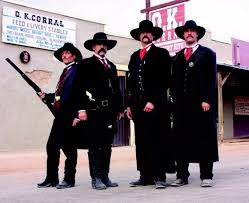
Then, there was the gunfight at the OK Corral in October 26, 1881 ... and not much has been "OK" with America ever since!
March 11, 2024
THEY LIE; I LIE

TRUTHS
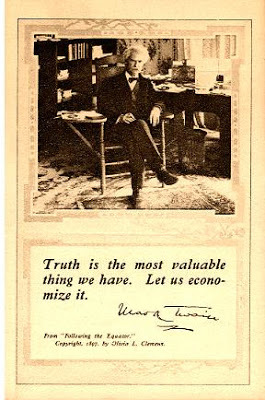
"Lies run sprints; But the truth runs marathons." - Michael Jackson
Truths are the antidotes for lies.
Especially the lies many authors believe.

LIES
They are what drives our characters to do the things that spiral into
foolishness and adventure and wisdom won ...
or defeat assured.
LIES
They do the same to us if we believe them about our writing dream.
Lies can be fought with truth talk.
LIE #1
I AM NOTHING, A FAILURE IF I DO NOT GET PUBLISHED.
Really?
Was Emily Dickinson a nothing, a failure
because she never gave up writing her poems her way and was never published in her lifetime?
Creative writing is one of the best exercises we can do for the aging brain.
Don't take my word alone for it:
Jenni Ogden, a writer AND a neuro-psychologist has found it so.
Writing adds to the intellectual and physical exercises
that slow down the brain’s aging process most often experienced
by the forgetting of names and words and where you put the car keys – or the car!
Use it or lose it.
LIE #2
IF I HAVEN'T MADE IT (GOTTEN AN AGENT, BECOME FAMOUS) BY NOW, I NEVER WILL.
Oh, come on now!
A novel is more than just sitting down and cranking out a word count.
There are those little pesky things
like plot, and character, and pacing, and dialogue and so on and so forth.
All of those things take time to develop.
While you’re doing all of this as a budding novelist,
you are also most likely doing all the other things in your days that constitute your life:
A day job, spouse and family, hobbies and friends,
reading and television and video games and even (wait for it) sleep.
It all adds up — and it all subtracts from the amount of time you have to write.
Writing those three or four or five novels an average writer has to burn through
before they write a publishable novel will likely take years.
No matter who you are as an author, you pay your dues at one end or another.
To put it another way: it takes many years to be an overnight success.
Maybe you haven’t “made it” yet.
That doesn’t mean you never will.
George Elliot didn't publish 'Middlemarch' until she was 52.
Anthony Burgess (published at 39),
Helen Dewitt published 'The Last Sumarai' at 41,
William S. Burroughs
("When you stop growing, you start dying.") published his first novel at 39.
Laura Ingalls
("There is no great loss without some small gain.”), was in her mid-60s when she published 'Little House in the Big Woods.'
Marquis de Sade, (Ah, let's not go there!)
Raymond Chandler (published 'The Big Sleep' at 51)
-- all gained fame older.
Bram Stoker, too (Who didn't write 'Dracula' until he was 50)
and said "We learn from failure not from success."
Gee, I must be a genius!
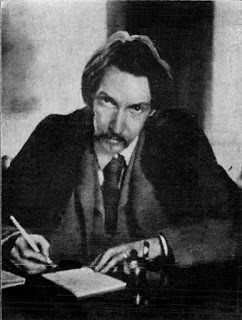
LIE #3
I DON'T HAVE TIME
Does Dean Koontz have a magic stopwatch that stops time to give him 30 hours a day to write?
Let me tell you about Robert Louis Stevenson --
A year after Kidnapped he left Scotland and southern England for America
in search of adventure and a better climate for his tuberculosis.
Writing continued on land and sea at 400 pages a year for twenty years.
From one letter home a year before Stevenson died:
"For fourteen years I have not had a day's real health; I have awakened sick and gone to bed weary; and I have done my work unflinchingly. I have written in bed, and written out of it, written in haemorrhages, written in sickness, written torn by coughing, written when my head swam for weakness;
And for so long, it seems to me I have won my wager and recovered my glove....
And the battle goes on 'ill or well.'
It is a trifle; so as it goes. I was made for a contest."
SO WHAT IS STOPPING YOU FROM WRITING?
March 8, 2024
COVID ... AGAIN
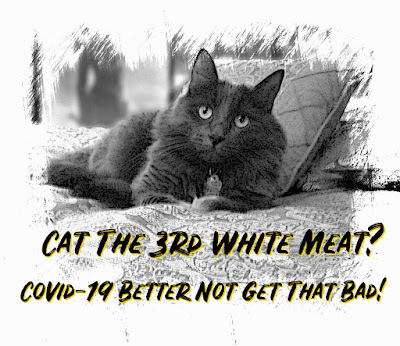 Last week, as I was delivering blood,
Last week, as I was delivering blood, an ill woman in an emergency room got up and coughed right in my face. Why?
Only the Father knows.
Now, I have come down with Covid-19 again.

To say I am under the weather is an understatement ... think having the bends! :-)

I am apartment bound until next Tuesday. Fortunately, I have soup, tea, and TV dinners enough to last ...
And hopefully, my coughing, fever, and weakness will pass soon.

Midnight insists I wear a mask while in his furry presence!

Since Lifeshare has changed to a new payment system where employees must calculate their own time each week
and I cannot show up to do it lest I infect my friends,
my pay may be drastically reduced.
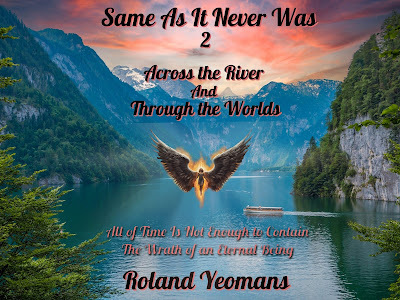
If I felt better, I would write on my sequel. Perhaps tomorrow.
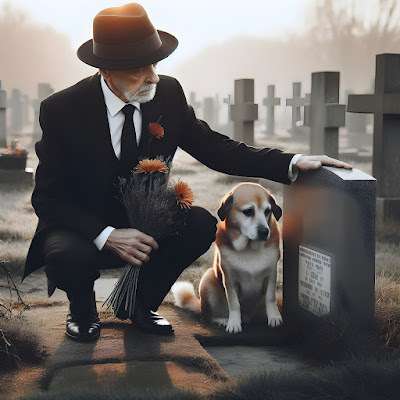
But I am alive ... and while there is life, there is hope for a path to a better tomorrow, right?
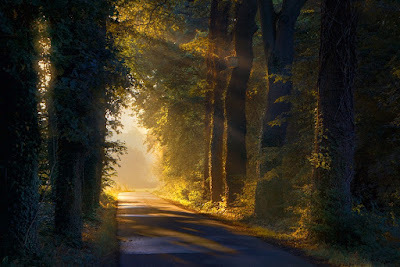
March 4, 2024
WHAT WILL YOU BE WRITING/DOING WHEN THE WORLD ENDS? IWSG Post
Is 2024 the world's and your Swan Song?
As Dua Lipa wrote:
"This is not a Swan Song but a Swan Dive. It's a New Life."
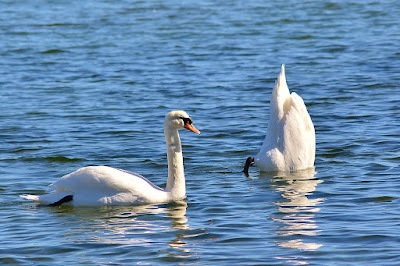
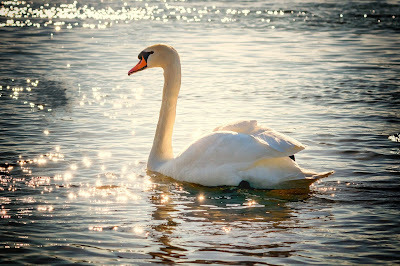 What is a Swan Song anyway?
What is a Swan Song anyway?
A swan song is the final performance of an actor, singer, composer, poet, or the like. According to folklore, swans sing most beautifully before they die,
and hence this phrase came to be used to describe someone who was leaving in style.
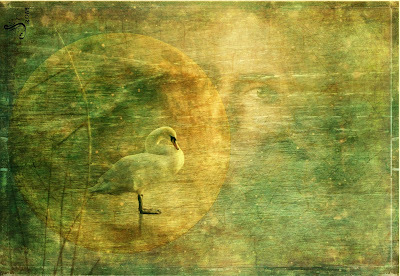
Leonardo da Vinci's Fable:
THE SWAN
The swan arched his supple neck towards the water and gazed at his reflection for a long time.
He understood the reason for his weariness
and for the cold that gripped his body, making him tremble as though it were winter.
With absolute certainty, he knew that his hour had come and that he must prepare for death.
His feathers were still as white as they had been on the first day of his life. Seasons and years had passed without a blemish appearing on his snowy plumage.
He could go now, and his life would end in beauty.
Straightening his beautiful neck, he swam slowly and majestically beneath a willow,
where he had been accustomed to rest in the hot weather.
It was already evening, and the sunset was touching the water of the lake with crimson and violet.
And in the great silence that was falling all around, the swan began to sing.
Never before had he found notes so full of love for all of nature, for the beauty of the heavens, the water and the earth.
His sweet song r ang through the air, scarcely tinged with melancholy, until, softly, softly, it faded with the last traces of light on the horizon.
"It is the swan," said the fishes, the birds, and all of the beasts of the woodland and meadow.
Touched to the heart, they said:
"The swan is dying."

Each of us will have our own Swan Song.
Some of us will choose the time.
Often that time will be chosen for us.

What sunset will be our last to see?
What bird in flight will be the last to thrill us?
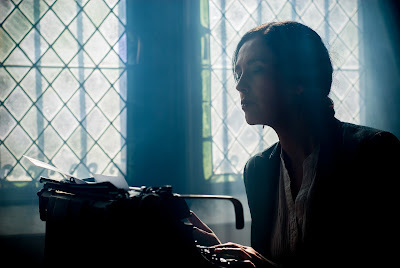
What book, short story, sentencewill unknowingly be our last?
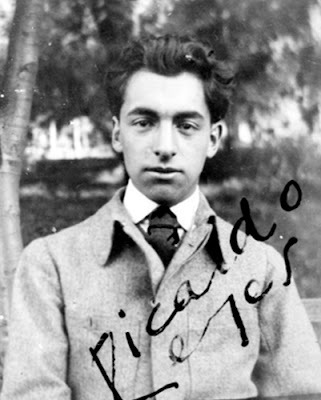
Found on the poet’s desk after his death,
“Finale” is Pablo Neruda’s final poem, and a love letter to his wife, Matilde.
“It was beautiful to live/when you lived!”
Be sure to craft each new book of yours with care.
It could be your own Swan Song.
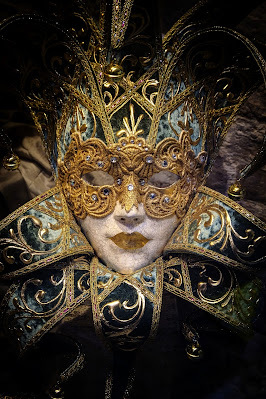
"I love you as certain dark things are loved, secretly, between the shadow and the soul."
- Pablo Neruda
February 29, 2024
February 28, 2024
THE GHOST OF LORD BYRON BADE ME REMEMBER THIS DAY

Lord Byron's letter of February 28,1817 from Venice to his friend Thomas Moore included one of his most popularlyrics,
"So we'll go no more a-roving
So late into the night,
Though the heart be still asloving,
And the moon be still as bright.
For the sword outwears itssheath,
And the soul wears out thebreast,
And the heart must pause tobreathe,
And love itself have rest.
Though the night was made forloving,
And the day returns too soon,
Yet we'll go no more a-roving
By the light of the moon."
To carry on with the moonlighttheme:
Ernest Thompson’s OnGolden Pond opened on Broadway on this day in 1979 for a ten-and-a-half monthrun, followed by the hit movie:
"Our minds are clear and ourhearts are strong.
We are dancing here, but we won’tbe long.
There will soon be deer wherethere now are fawns. But we’ll remember our years on Golden Pond,
On Golden Pond…."
February 27, 2024
BEWARE YOUR THOUGHTS BEFORE SLEEP
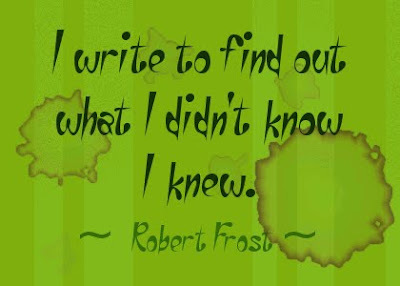 "Science says the first word on everything, and the last word on nothing" – Victor Hugo
"Science says the first word on everything, and the last word on nothing" – Victor HugoWhat thoughts do you habitually think before sleep claims you? Do you keep track of such things?
Science does but the conclusions are conflicting
so you can pretty much believe what you want on such matters with some scientist's blessings.
Last night, I was mulling over Robert Frost's evocative poem about the winter wind and a lovely window flower.
She a window flower,
And he a winter breeze.
When the frosty window veil
Was melted down at noon,
And the caged yellow bird
Hung over her in tune,
He marked her through the pane,
He could not help but mark,
And only passed her by,
To come again at dark. He was a winter wind,
Concerned with ice and snow,
Dead weeds and unmated birds,
And little of love could know.
Before the rest of the poem could murmur within my sleepy brain, a thin, reedy voice spoke to my right.
My ghost cat, Gypsy, yowled her "I am the only friggin' ghost allowed here tonight" yowl.
"All literature begins with geography."
I pried lead-heavy eyelids reluctantly open.
Gypsy shoved her tiny head under my pillow, grumbling low. Robert Frost smiled at her from his ghost chair by my bed.
He gazed off into the darkness and murmured one of the last lines he ever wrote while alive:
"Unless I'm wrong
I but obey
The urge of a song
I'm—bound—away!
And I may return
If dissatisfied
With what I learn
From having died."
He turned his eyes back to me.
"As it turned out, I was quite satisfied with what I learned. But Elinor has chased me out of our celestial farm tonight."
He rubbed his chin ruefully.
"She says I always get insufferable on this day."
Gypsy pulled her head out from under the pillow and yowled. Robert Frost shook his head and answered my cat.
"Upon this day in 1963 I learned that my "In the Clearing" collection had won the Bollingen Prize for best book of American verse, 1962. It oddly pleased me to no end for some reason."
I tried to blink some clarity to the fog of my awakening mind. "Ah, Mr. Frost ...."
"Rob, please."
"Uh, Rob, do you really think all literature begins with geography?"
He laughed.
"Starting with absolute pronouncements is an old teaching trick, Roland.
You were a teacher as was I. You know that. It is human nature to rail against them, to kick holes in them, thus thinking through your own beliefs in the meantime."
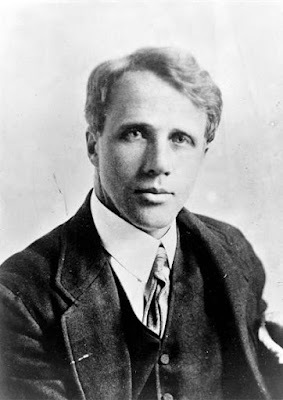
He pursed his lips like a troubled librarian for a moment.
"But geography certainly shaped my own poetry. You could call these places "Frost Country":
San Francisco, Lawrence, Derry, England, Franconia, Shaftsbury, Ripton and Bennington. These are the literary time capsules of my beliefs and will enrich your enjoyment of my poetry."
Gypsy angrily muttered under her feline breath, and Robert Frost chuckled, "No that is not the reason I disturbed your sleep, ghost-cat."
He patted his knees.
"I wanted to tell you, Roland, to persevere. You, and all your blog friends, have more talent than you believe, and this new year will bring fresh harvests."
He rose slowly, smiling ruefully.
"By working faithfully eight hours a day you may eventually get to be boss and work twelve hours a day."
He started to fade like a dream upon awakening.
"No great wisdom from beyond I'm afraid. In three words I can sum up everything I've learned about life: it goes on."
He tapped my shoulder with all-but-invisible hand.
"Forgive me my nonsense, as I also forgive the nonsense of those that think they talk sense."
The last thing I saw was his faint smile.
"Now, back home to Elinor. Home is the place where, when you have to go there, they have to take you in."
And he was gone.
So? Do you have any tricks you use when you want to make your readers think?
And do you think Rob was right? Does all literature begin with geography? Do the important places in your life affect how and what you write?
What thoughts do you usually mull over as you drift off to sleep?
**
February 26, 2024
ARE WESTERNS SET TO MAKE A MOVIE COMEBACK?
My Western Samuel McCord fantasies certainly hope so.
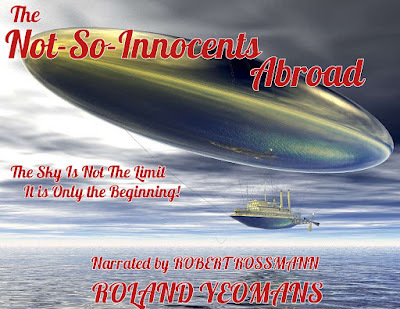
https://www.amazon.com/dp/B01EUFRKKI
Set in the same time period as Kevin Costner's HORIZON
Grace Randolph likes STAGECOACH
as do I.
In fact, back in the day
John Wayne could have played Sam McCord ...
and once did in fact!
What do you think?
Are Westerns due for a comeback?
February 24, 2024
POETRY DIES FIRST, THEN PROSE

"The poetry of the earth is never dead."
- John Keats
“Never be bullied into silence. Never allow yourself to be made a victim. Accept no one’s definition of your life; define yourself.”
- Robert Frost
"Poetry is when an emotion has found its thought, and the thought has found words.”
- Robert Frost

Has poetry become the slide rule of literature, of the arts?
The knee-jerk instinct is to strongly deny that assertion.
But sadly wanting something to be true does not make it true.
In 1992, 17% of Americans had read ONE poem IN THE PRIOR YEAR. ONE IN A YEAR'S TIME.
In 2012, 6.7% had read ONE poem IN THE PAST YEAR. 6.7%! ONE POEM!
Since 2002, the number of poetry readers has contracted 45% --
the steepest decline in any literary genre.
Poetry is less popular than jazz, dance, and knitting.
It only beats going to the opera by a slim percentage.
From 2004 to 2015 Google Searches for poetry have fallen faster than a brick kite.
Today's Google Searches for poetry are only 20% of what they were ten years ago.
Our hearts want it to be otherwise, but the numbers say different.
Still, I read poetry daily for it sings to me as no other prose does and whispers my soul's thoughts:
I live alone, I look to die alone:
Yet sometimes, when a wind sighs through the sedge,
Ghosts of my buried years, and friends come back,
My heart goes sighing after swallows flown
On sometime summer's unreturning track.
- Christina Georgiana Rossetti
February 21, 2024
NOCTURNE FOR POETRY
National Poetry Day?
But since Poetry is an endangered species of literature,
it comes and goes unnoticed by most.
Here is a tip of my Stetson to Poetry and its unremembered day:
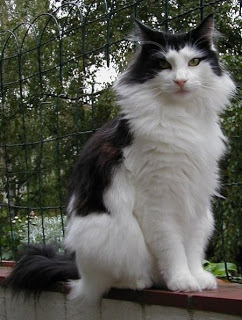
I have a ghost cat. Gypsy is her name. It's all right if you think I am crazy. Most days I do as well.
Being a ghost, she warns me when I am about to be visited in the midst of my sleep.
She mutters under her breath as she was muttering now.
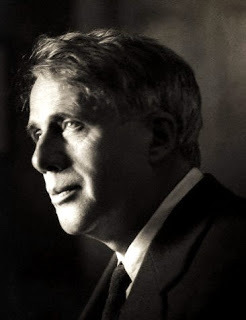
A reedy voice quavered in the darkness by my bed, "I have been one acquainted with the night.
A poem begins as a lump in the throat, a sense of wrong, a homesickness, a lovesickness"
Robert Frost slowly materialized in a misty cane chair by my bed.
"I thought people would always be held fixed by poetry -- not necessarily mine. But now, poetry is as dead as I."
Gypsy muttered something in cat and shoved her head under my pillow, and Frost shook his head,
"Yes, even more so since I am keeping your loyal cat awake."
He smiled at my frown. "I am fluent in Cat."
His smile died, "But no one is fluent in the magic of poetry any more it seems."
I murmured a bit of "I Knew a Woman" by Theodore Roethke:
"I knew a woman, lovely in her bones
When small birds sighed,
she would sigh back at them."
He shook a long forefinger at me. "You do not count. You are Lakota."
I snorted, "We Lakota hear that a lot."
He ignored me. We Lakota are used to that, too, and he whispered,
"Society has been changing in a way that did not favor the reading of poetry.
From the Me Generation of the '70s to the get-rich-quick '80s,
to the "Disagree With Me, And I Will Try and Erase You," our culture became intensely prosaic.
Ambiguity, complexity and paradox fell out of favor. You the living embraced easily defined goals and crystal-clear communication
(Ronald Reagan was president, presiding over the literalization of America).
Fewer politicians seemed to quote contemporary poets in speeches,
and the relatively small number of name-brand, living American poets died or faded from view.
By the '90s, it was all over.
If you doubt this statement, consider that poetry is
the only art form where the number of people creating it is far greater than the number of people appreciating it.
Anyone can write a bad poem.
To appreciate a good one, though, takes knowledge and commitment.
As a society, you lack this knowledge and commitment. People don't possess the patience to read a poem 20 times before the sound and sense of it takes hold.
They aren't willing to let the words wash over them like a wave, demanding instead for the meaning to flow clearly and quickly.
They want narrative-driven forms, stand-alone art that doesn't require an understanding of the larger context."
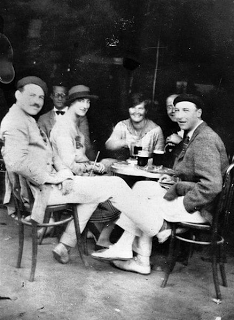
The ghost of Hemingway materialized beside him, sipping from a glass of whiskey.
"Roland is part of a world that apotheosizes the trendy, and poetry is just about as untrendy as it gets.
Bored housewives want to read books with buzz, the latest trend."
I shook my head. "Not everyone."
They both said as one, "You don't count."
I was starting to get a complex.
Hemingway muttered,
"Poetry is designed for an era when people valued the written word and had the time and inclination to possess it in its highest form."
Frost nodded, "Poetry is dead."
Hemingway scowled over to me.
"If poetry is dead, you prose writers are in the next ward over, wheezing noisily, with your family gathered around looking concerned and asking about your silverware."
I shook my head and murmured from Theodore Roethke again:
"I wake to sleep, and take my waking slow.
I feel my fate in what I cannot fear.
I learn by going where I have to go.
We think by feeling. What is there to know?
I hear my being dance from ear to ear.
I wake to sleep, and take my waking slow."
And since Gypsy is now a ghost cat, she drew her tiny head out from under the pillow
and yowled in a voice which sent shivers through the marrow of my bones,
"Little do you two-leggeds know of the things that ink may do, how it can mark a dead man's thoughts for the wonder of later years, and tell of happenings that are gone clean away,
and be a voice for us out of the dark of time, and save many a fragile thing from the pounding of heavy ages; or carry to us, over the rolling centuries,
even a song from lips long dead on forgotten hills.”
With that, Gypsy thrust her tiny ghost head under my pillow.
Frost turned to Hemingway and sighed, "When ghosts of cats speak wiser and lovelier than we, it is time to go."
Which they did.
WHAT DO YOU THINK?
IS POETRY DEAD?
WHEN WAS THE LAST TIME YOU READ POETRY?
WHEN WAS THE LAST TIME YOU COMMITTED A VERSE TO MEMORY?



